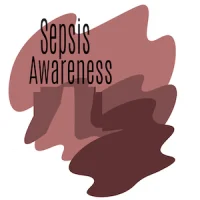Sepsis is a life-threatening organ dysfunction caused by a dysregulated host response to infection. Sepsis contributes to between a third and a half of deaths in hospitals. It is responsible for nearly 11 million deaths worldwide each year. Treatment of sepsis typically includes antimicrobial therapy, source control, and organ support. It is believed that the antioxidant effects of vitamin C therapy may mitigate tissue injury induced by oxidative stress. Vitamin C cannot be synthesised by humans, and since its levels may be quite low in critically ill patients, they could potentially benefit from vitamin C supplementation.
However, the benefits of intravenous vitamin C in adults with sepsis who have received vasopressor therapy in the ICU remains unclear as studies show mixed results in terms of the risk of death and organ dysfunction.
In a recent study, adult patients who had been in the ICU for no longer than 24 hours and who had a proven or suspected infection and were receiving a vasopressor were assigned to receive an infusion of either
vitamin C at a dose of 50 mg per kg of body weight, or placebo administered every 6 hours for up to 96 hours. The primary outcome of the study was a composite of death or persistent organ dysfunction on day 28.
Eight hundred and seventy-two patients were included in the study. Four hundred thirty-five patients received the vitamin C infusion, and 437 patients received placebo.
As per the results of the study, the primary outcome occurred in 44.5% of the patients in the vitamin C group and 38.5% in the placebo group. Death at 28 days occurred in 35.4% of patients in the vitamin C group and 31.6% in the placebo group. Persistent organ dysfunction occurred in 9.1% of patients in the vitamin C group and 6.9% in the placebo group. Both groups displayed similar findings regarding organ-dysfunction scores, biomarkers, six-month survival, quality of life, acute kidney injury, and hypoglycaemic episodes.
These findings show that in patients with sepsis receiving vasopressor therapy in the ICU, the use of intravenous vitamin C resulted in a higher risk of death or persistent organ dysfunction at 28 days compared to patients who received placebo.
Click here for more Sepsis news.
Source: NEJM
Image Credit: iStock
References:
Lamontagne F, Masse M-H, Menard J et al. (2022) Intravenous Vitamin C in Adults with Sepsis in the Intensive Care Unit. NEJM.
Latest Articles
Sepsis, organ dysfunction, Intravenous Vitamin C
Intravenous Vitamin C in ICU Patients with Sepsis











